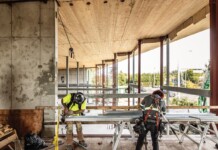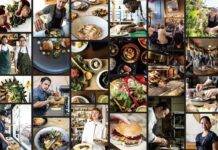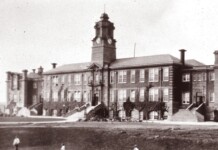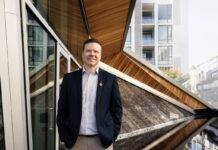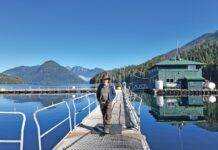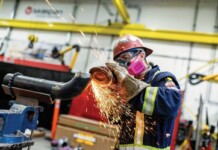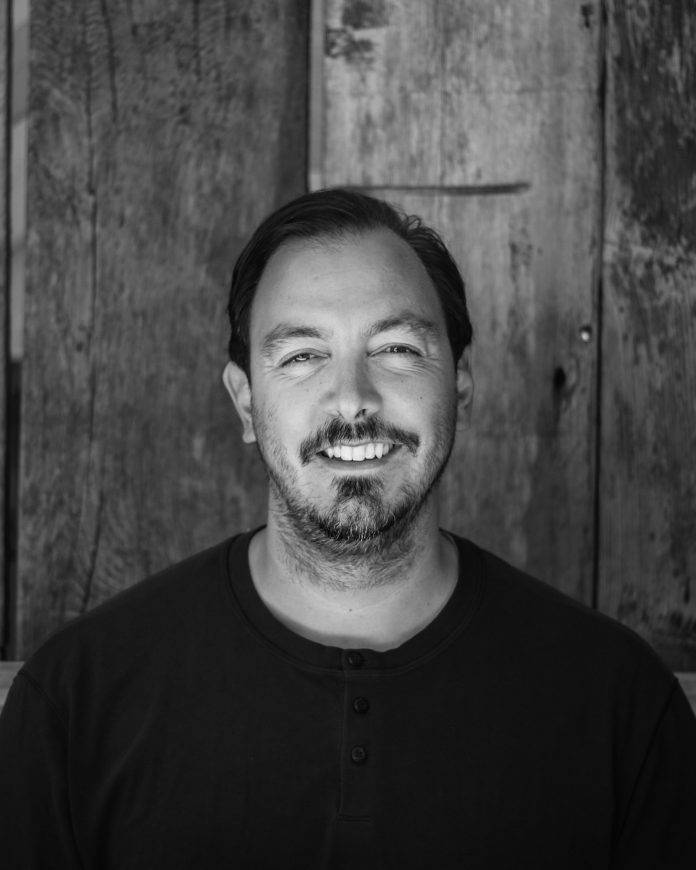Luke Mari, Principal and Development Lead at Aryze has always been people minded.
“At the end of the day, it’s about the people that move in and love their spaces that keeps us loving our work. It’s not about the housing, it’s about who is housed,” Luke says.
Luke grew up in a community-minded Christian family where the value of human beings was not derived from accomplishments but from intrinsic value. He was raised in CRD housing in a warm and welcoming Italian Canadian family who opened their home to strangers often: “My mom used to constantly bring home random folks to enjoy a home cooked pasta meal and hear their life stories.” Luke’s colleagues also grew up in co-operative housing, and this upbringing shaped the foundation of their future philanthropic ideals.
His people centered design skills were stretched when visiting Copenhagen – a paragon of urban planning/design – where he experienced the work of Danish architect and urban design consultant Jan Gehl, a leader of the people-first approach to urban strategy and design.
While most cities in 1971 were focused on growing car culture, Gehl was speaking to the need of human scale transportation systems. His work tied together transportation and built form and all other interactions within a city. He famously said, “We can have twice the amount of people move through a space or have half as many people stay for twice as long, we chose the latter.” Those words resonate with Mari.
‘Urbanism’ is a flourishing topic as our society hurtles towards urban life. With the rise of urbanism comes housing shortages, centralized jobs and improved transportation is rapidly becoming a human right. Mari hopes that more people will reflect on how these systems interconnect. The question remains: how can our cities best respond to the needs of our communities?
By closing gaps in the housing continuum, which is what Mari did through Aryze’s most recent project.
HEY NEIGHBOUR
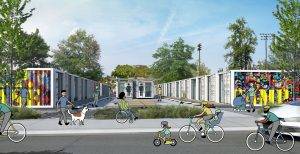
Hey Neighbour was started when Aryze found a gap in the housing continuum for some of Victoria’ most vulnerable. The pandemic had already exacerbated a housing affordability crisis and a mental health epidemic and as a result, shelters closed, leaving many without a home, requiring them to live in tent communities in parks throughout Victoria.
Luke noticed the “tent community” discourse was quite polarized with many people viewing the homeless in parks as criminals and other proposing compassion. Nevertheless, he knew compassion alone wasn’t a solution.
His team designed a rapid housing system using repurposed shipping containers and teamed up with the Greater Victoria Coalition to End Homelessness. This is the first project using containers for rapid housing relief for the homeless that Luke is aware of.
The idea to use crowdfunding – to raise $500,000 – in order to create 30 transitional housing units at 940 Caledonia allowed both sides of the contentious debate to contribute financially to a solution that wasn’t partisan.
Every level of society is participating in this project. The community and businesses are fundraising, Aryze is building, the City is providing the land, and two non-profits (Coalition to End Homelessness and Our Place) supported by Provincial funding are handling operations. The shipping containers were donated at cost, as well as all of the construction materials. DAU Studio and Biophilia have designed the spaces.
It’s a massive, multi-pronged communal collaboration that will ultimately see people in more secure housing at a fraction of the cost by the end of March. Other solutions of the same cost might only house two to three people, not 30.
Each unit is 160 square feet, and is designed to include a bed, a desk, a hot plate, a fridge, shared bathroom and shower facilities and possibly a shared outdoor kitchen.
This community will provide access to comfortable and safe housing, incorporate public art made by Kay Gallivan, Lydia Beauregard, and Caitlin McDonagh, and provide opportunities for residents to learn new skills and engage in social enterprises, like bicycle repair shops and community gardens.
So far $501,150 has been raised, surpassing the $500,000 mark. There are 9 months remaining in the crowdfunding campaign.
Luke is proud of the project, “Being called a homebuilder isn’t a title, it’s an obligation. If we can’t figure out ways to house the City’s most vulnerable, then we aren’t succeeding collectively.Whether it’s the Hey Neighbour shipping container housing project or a high end condo, we approach every project with the same care as the fabric of society and the health of the City is bound through our shared humanity.“
To learn more about this project and how to contribute, visit Canada Helps.



